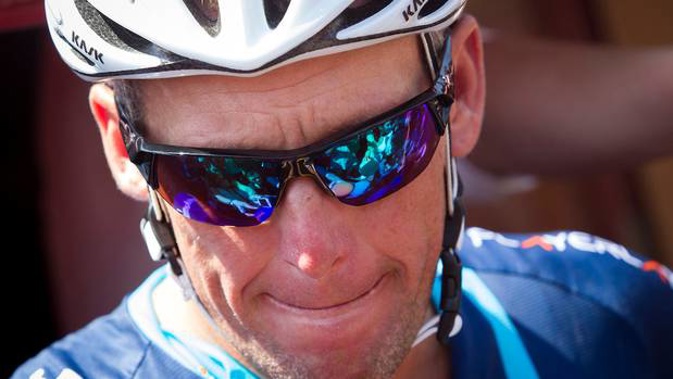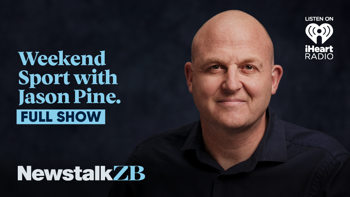
Seven years on from disgraced cyclist Lance Armstrong being exposed for doping, it is still hard to trust anything he says.
It appeared to be one of the more difficult aspects of telling the well-worn story of the former seven-time Tour de France champion in the latest instalment of ESPN's 30 for 30 series, Lance.
The first episode of the two-part documentary airs on ESPN tonight NZT, and features explosive admissions from a man who has suffered one of the biggest falls from grace in sporting history.
While it's hard to trust anything Armstrong says after a career built on lies, the documentary deals with the issue head on.
In the opening scene, Armstrong shares an experience of people in the general public abusing him while he was outside a bar.
While he was mad, he jumped into an Uber and called the bar and paid for their night.
But as he finishes the story, Armstrong still seems to struggle to comprehend why the world can't get over the betrayal of the disgraced champion, despite the reason being plainly obvious to almost everyone else.
"Some people can't chill the f*** out, they're p***ed still and they'll be p***ed forever," he says.
It's the elephant in the room and is immediately addressed by ESPN senior writer Bonnie Ford and former VeloNews editor Charles Pelkey.
Even today, Armstrong is still trying to elicit sympathy.
"He does evoke a strong response, positive or negative. He is a person who gets into people's heads and he knows that, he likes that, it's the core of his identity that he's able to do that," Ford says.
"It would be hard for me to believe that Lance won't try to shape any narrative about him, including yours, including anyone he deals with."
Pelkey adds: "The talk out there is that this is basically something to feature Lance Armstrong's effort to resurrect his reputation and that yours is going to be a somewhat sympathetic portrayal."
But Armstrong said he would tell his truth.
"I'm not going to lie to you Marina (director Zenovich), I'm not, and I'm not saying they will but I'm going to tell you my truth and my truth is not my version but my truth is the way I remember it," he said.
So much doubt still lingers over Armstrong after his sophisticated doping program came to light and blew up his career.
This is how the filmmakers have illuminated Armstrong's deceptive legacy, placing many of his interviews next to others who paint the picture of a pathological bully whose main driver was his unquenchable will to win.
EARLY ORIGINS OF ARMSTRONG'S DECEPTION
Armstrong argues his competitors were also doping when he started, pointing to cycling's history of using substances to gain an edge. "I never knew this story was as big as it was, I knew it was big but I didn't know it was that big," he adds.
With his seven Tour de France titles now long removed from his record of achievement, Armstrong's legacy of lies spreads through the film.
Armstrong admitted he began doping at 21, knowing he was breaking the rules.
He said he wasn't good at other sports when he was young and began swimming at 12 but quickly progressed, which led him to triathlons and cycling.
Here, the lies started. Needing to be 16 to compete in some triathlon events, a 15-year-old Armstrong still found a way to compete.
"Enter, kick their a**, just win," Armstrong says. "Forge my birth certificate, compete illegally, then beat everybody."
ARMSTRONG A BULLY IN THE MAKING
Armstrong's then-coach Rick Crawford said his pupil's bullying tendencies that were so prevalent in exposing his doping to the world were a trait he'd had from an early age.
"That bully thing that has come up in the rhetoric over the years, I saw that from day one," Crawford said. "(International Triathlon Championship Bermuda 1987) was the biggest race in the world, ridiculous prize list, all the top triathletes were flown in, and I rented him a scooter, my credit card and said this is how you get around.
"He abused the scooter pretty bad, he didn't take care of it, he didn't bring it back when he should have, 'Man don't worry about it'. He's actually saying, 'I can beat you so there's nothing more you can do for me'.
"Then I remember having a hard time with Linda (Armstrong's mother) on that. We take him to Bermuda, he's breaking stuff, he takes no responsibility for anything and then he's so mouthy and disrespectful and she's like, 'Well you don't have any authority over him'. I kind of got flicked at that point and that stung."
At that point, Armstrong moved to the bike full time and in 1990, he earned his first contract with a cycling team before he was recruited to Motorola in 1992. It was at this time that he began using illegal doping products.
"In terms of crossing the line into something where if you admitted or could have tested positive for, then that wouldn't have been until 21-years-old," Armstrong says. "My first professional season.
"At that time in the sport it was cortisone or cortisone precursors or drugs that stimulate your body's own production of cortisone."
RELATIONSHIP SHOWS LANCE 'TRYING TO JUSTIFY' WHAT HE DID
In 1994 the use of Erythropoietin (EPO) took off but Armstrong said he didn't touch it until 1995, where it was reportedly rife in the cycling world.
He said it was the winter of 1995 that he began working with Dr Michele Ferrari, the mastermind of the EPO program.
"Ferrari was a proponent of less is more, and he said, 'Lance, all you need is red cells'," Armstrong says. "So EPO, which then became transfusions and bags, and that's it."
It was a decision that other cyclists were far from impressed about with former pro cyclist Paul Willerton taking aim at Armstrong's relationship with the doctor.
"I don't have any personal experiences with Dr Ferrari to point to, I did have to deal with athletes that Dr Ferrari manipulated values on," Willerton says. "To me, that's a continuation of people who want to lie, cheat and steal from others to gain an advantage trying to justify what they're doing."
"By the start of 1996, he looked like a different person, much lower body fat, looked stronger and he was winning or placing in every single race he was entering and was no longer upset about people doping," added former teammate Jonathan Vaughters, who had earlier admitting doping from 1996.
Before winning his seven Tour de France titles, Armstrong went through stage four testicular cancer which had metastasised throughout his body but miraculously, he overcame the disease.
Armstrong wasn't sure if the doping contributed to cancer but feared using growth hormones in 1996, the only time he says he did it in his life, may have contributed to the severity of his condition.
But Armstrong continued doping on his return, even lying when he returned a positive drug test at the 1999 Tour de France. Armstrong got away with it as the same steroid came in cream form, which he argued was for saddle sores, with a medical certificate to back it up.
Take your Radio, Podcasts and Music with you









